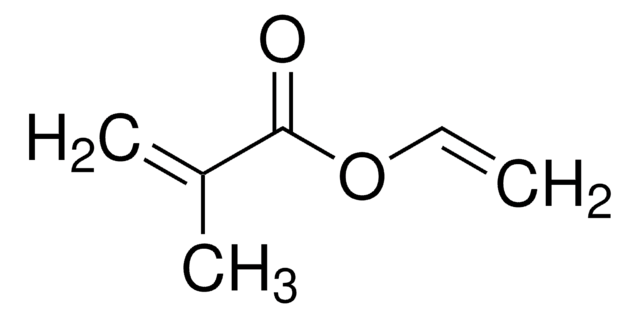477028
2-Hydroxyethyl methacrylate
≥99%, contains ≤50 ppm monomethyl ether hydroquinone as inhibitor
Synonym(s):
1,2-Ethanediol mono(2-methylpropenoate), Glycol methacrylate, HEMA
About This Item
Recommended Products
vapor density
5 (vs air)
Quality Level
vapor pressure
0.01 mmHg ( 25 °C)
Assay
≥99%
contains
≤50 ppm monomethyl ether hydroquinone as inhibitor
refractive index
n20/D 1.453 (lit.)
bp
67 °C/3.5 mmHg (lit.)
density
1.073 g/mL at 25 °C (lit.)
storage temp.
2-8°C
SMILES string
CC(=C)C(=O)OCCO
InChI
1S/C6H10O3/c1-5(2)6(8)9-4-3-7/h7H,1,3-4H2,2H3
InChI key
WOBHKFSMXKNTIM-UHFFFAOYSA-N
Looking for similar products? Visit Product Comparison Guide
General description
Application
Signal Word
Warning
Hazard Statements
Precautionary Statements
Hazard Classifications
Eye Irrit. 2 - Skin Irrit. 2 - Skin Sens. 1
Storage Class Code
10 - Combustible liquids
WGK
WGK 1
Flash Point(F)
222.8 °F - closed cup
Flash Point(C)
106 °C - closed cup
Choose from one of the most recent versions:
Already Own This Product?
Find documentation for the products that you have recently purchased in the Document Library.
Customers Also Viewed
Articles
With dentists placing nearly 100 million dental fillings into patients′ teeth annually in the U.S. alone, polymeric composite restoratives account for a very large share of the biomaterials market.
Our team of scientists has experience in all areas of research including Life Science, Material Science, Chemical Synthesis, Chromatography, Analytical and many others.
Contact Technical Service














